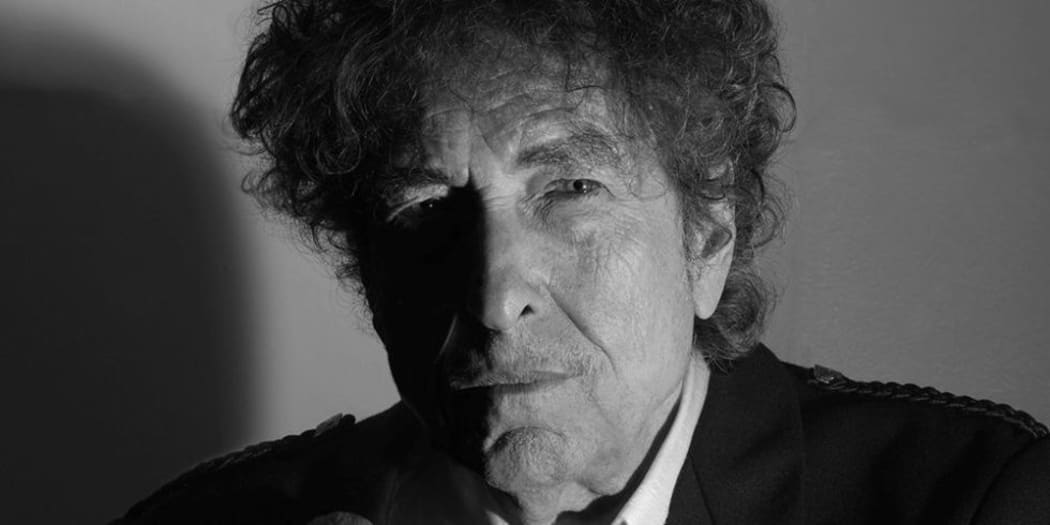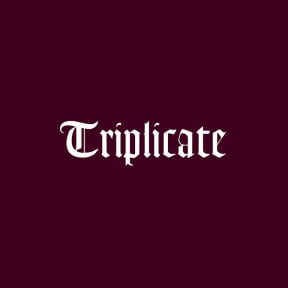
Bob Dylan Photo: Supplied
Nick Bollinger explores an unexpected late-career detour into swing-era standards from Bob Dylan.

It was Jeff Tweedy of the band Wilco who, after touring as an opening act for Bob Dylan a few years ago, suggested an appropriate T-shirt slogan for the music legend might be: Bob Dylan - pissing people off since 1962.
And it looks like he’s done it again.
As the title suggests, Triplicate is not one album but three, thirty songs in total, all selections from what’s often been called The Great American Songbook, the era before rock’n’roll in which professional songsmiths wrote songs popularised by singers from Rudy Valee to Frank Sinatra. It would be fair to say that in 2017 this is not what the majority of Bob Dylan fans were asking for.
Still you could hardly say it’s inconsistent with an artist who has been, as Tweedy observes, been pissing people off now for more than half a century.
He caused the first ripples of discontent on the release of his very first album, when several fellow Greenwich Village folk singers discovered he had borrowed items from their repertoires, complete with their original arrangements. That didn’t stop him from going on to become the most popular folk singer in the known universe, though there were further stirrings when he abandoned the social and political messages of his own early songs for the more impressionistic territory of ‘Chimes Of Freedom’ and ‘Mr Tambourine Man’. But all that was nothing compared to a couple of years later, when he forsook folk altogether in favour of rock’n’roll.
And the betrayals have gone on and on. No sooner had the world got used to Dylan with a Stratocaster than he went country. Then gospel, complete with evangelical sermonising. Eventually he wound up on an eternal world tour, playing barely recognisable versions of his beloved songs, night after night.
Of course, looking back one can wonder what all the fuss was about at each of these supposed betrayals. And a good deal of what was decried as a sell-out of one kind or another at the time is now simply seen as part of the astonishing canon of Dylan’s work. Why complain when you can have ‘The Times They Are A Changin’ and ‘Like A Rolling Stone’? Which still leaves the question: what is this latest phase in his long artistic career? What does it add to that canon? And what’s behind it?
Triplicate is made up of three discrete discs, each with ten songs and each with its own name. ‘Til The Sun Goes Down, Devil Dolls, and Comin’ Home Late. The discs are organised around moods, moving through experience, longing and regret to arrive at a kind of sad acceptance. This set follows on from two earlier single albums of standards, which means Dylan has now released five albums of material in this vein.
The first thing that seems unusual about this apparent obsession with The Great American Songbook is that Dylan is best known for writing his own material. In fact, he’s often credited for bringing the era of the American songbook to an end, so seductive was the image he patented of the self-sufficient singer-songwriter; the lone troubadour with a weird voice and an individual point of view.
But it’s worth remembering that, unlike a lot of his acolytes, Dylan started out singing other people’s songs: Hank Williams, Woody Guthrie and a thousand songs from the folk tradition, whose authors were unknown. His first album was drawn almost entirely from such sources, and it’s a well he’s returned to over the years. In the early 90s he released two magnificent albums of old folk and blues songs, though these were largely overlooked and doubtless even pissed some people off.
Still, there’s a discernable line that can be drawn from the old folk and blues songs to the original songs for which Dylan was recently awarded the Nobel Prize For Literature. (And there’s a certain irony in the fact that having been awarded the highest literary honour in the world, he almost immediately makes a record without a single word of his own on it.) The connection between Dylan’s work and pre-war songsmiths like Irving Berlin, Hoagy Carmichael, Harold Arlen and Johnny Mercer might be less apparent.
Yet whatever else you might say about his singing on Triplicate, it never comes across as anything less than sincere. His voice isn’t conventionally beautiful; it never was. Sometimes he seems to be straining for the notes, and many of these songs are challenging for the most mellifluous of singers. But it’s clear from performances like these that he intends to render their melodies as faithfully as he can.
What is perhaps most striking about the performances on Triplicate – other than the taste and subtlety of Dylan’s band, just occasionally augmented by the softest of horns - is that Dylan has created a new voice for these songs. It’s not the voice he used on Tempest, his most recent album of originals, where in songs like ‘Pay In Blood’, ‘Early Roman Kings’ or his ode to John Lennon ‘Roll On John’, he made dramatic use of the fact that his voice is now ravaged and harsh. It’s not exactly silky here either; still there are moments where that voice – worn down and cigarette-stripped as it might be – is unexpectedly sweet.
At other times you wonder whether, whatever his intentions, however individual his interpretation, Dylan simply doesn’t have the range these songs require. Sometimes we’re so distracted by the gurgling coming out of his voicebox that it’s hard to hear the song.
But the enigmatic artist gave a rare interview to accompany the release, published on his own website, in which he explains a few things.
Some of what he says is typically oblique. When asked about the fact that each of the three discs has 10 songs he says, as though it were obvious, “Sure, it’s the number of completion. It’s a lucky number, and it’s symbolic of light.”
But when asked “Do some of these songs allow you to go to a place you can’t go in your own writing?” his answer was uncharacteristically straightforward. “Sure they do. I would never write ‘Where Is the One,’ but it’s as if it was written for me, so I didn’t have to write it. It’s a tough place to get to, it’s vulnerable and protected. Someone else had to write this song for me.”
Songs featured: I Guess I’ll Have To Change My Plan, It’s Funny To Everyone But Me, That Old Feeling, How Deep Is The Ocean?, I Could Have Told You, These Foolish Things, Where Is The One?
Triplicate is available on Columbia.

